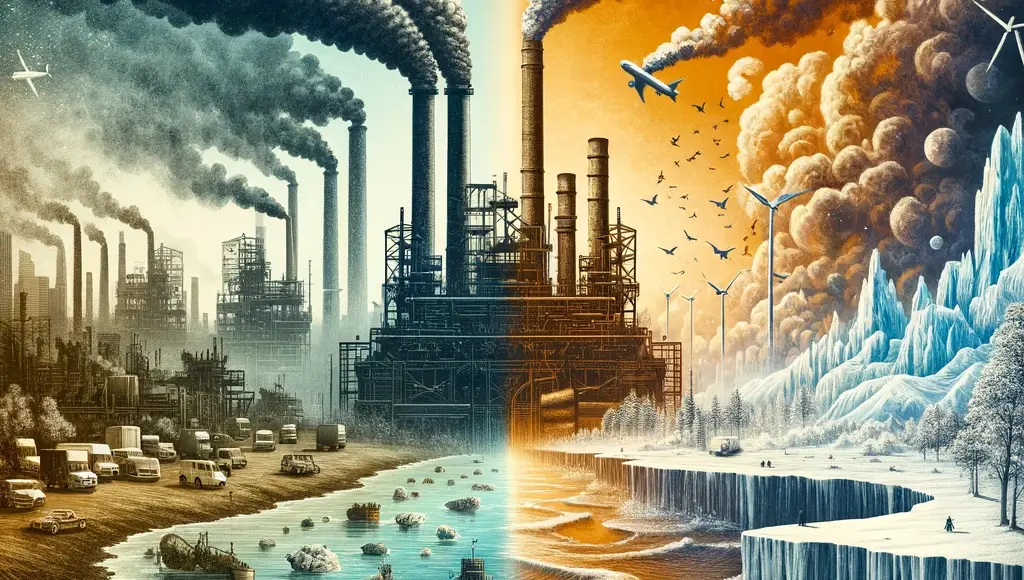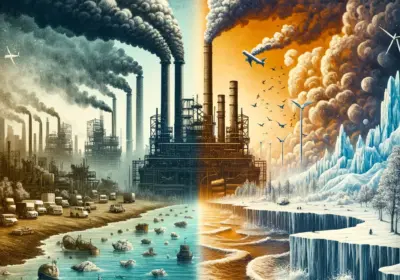The climate crisis is a global threat that has gradually developed over centuries due to the cumulative effects of human activities and has become increasingly pronounced in recent years. This article examines how the crisis has escalated over time and explores the pivotal moments throughout history that have influenced this trajectory.

Industrial Revolution and Beginnings
The origins of the climate crisis can be traced back to the late 18th century with the onset of the Industrial Revolution. This era marked a significant increase in the use of fossil fuels such as coal and oil, leading to the release of large amounts of carbon dioxide and other greenhouse gases into the atmosphere. The accumulation of these gases has trapped heat on our planet, leading to global warming.
20th Century: Awareness and Early Warnings
By the mid-20th century, scientists began to discover the potentially harmful effects of the increased amount of carbon dioxide released into the atmosphere from burning fossil fuels. In 1958, the “Keeling Curve” initiated by Charles David Keeling began documenting the continuous rise in atmospheric carbon dioxide concentrations. This was one of the first concrete scientific observations related to climate change.
Environmental Movements and International Efforts
In the 1970s, environmental awareness started to grow, leading to various environmental movements such as the inception of Earth Day. The Montreal Protocol in 1987 marked an international agreement to reduce the use of substances that deplete the ozone layer. However, broad international collaboration to combat global warming and climate change was not addressed until the 1992 Rio Earth Summit, which later led to significant steps like the Kyoto Protocol and the Paris Agreement.
21st Century: The Severity of the Situation and Increasing Impacts
The 21st century has seen the tangible impacts of the climate crisis begin to manifest. Record high temperatures, melting glaciers, rising sea levels, and more severe weather events are direct consequences of the ongoing climate crisis. These effects underscore the urgency of addressing climate change and have prompted increased activism and policy initiatives globally.
Challenges and Hope Moving Forward
As we continue to face the challenges of the climate crisis, there is a growing emphasis on sustainable practices and renewable energy sources. Innovations in technology and increased public awareness are fostering a shift towards a more sustainable future. However, significant global cooperation and commitment are required to mitigate the effects of climate change effectively.
Understanding the historical context of the climate crisis not only helps us appreciate the magnitude of the challenge but also highlights the collective effort needed to secure a sustainable future for coming generations.
You can find more articles like this here.












